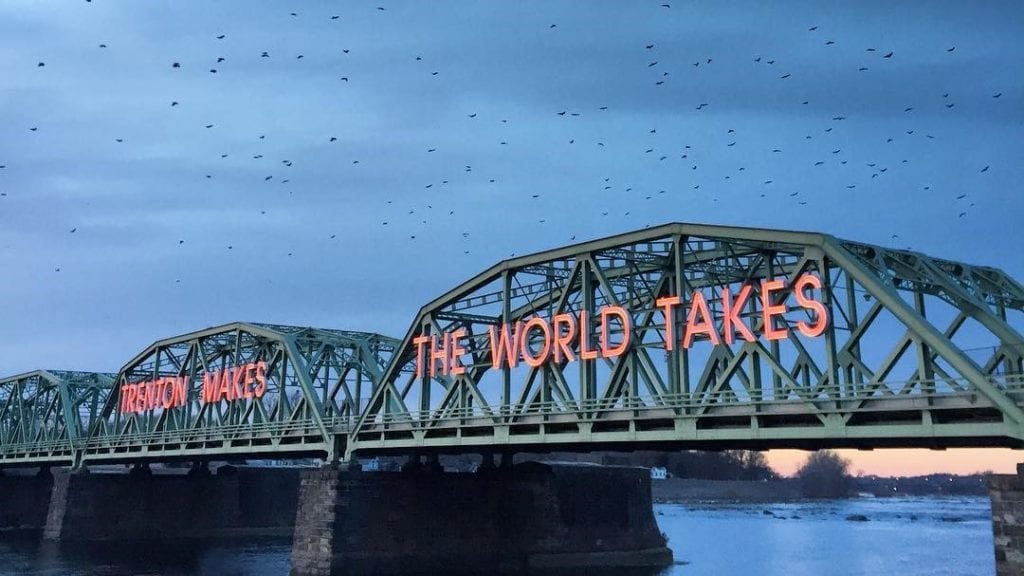Although being a resident of Trenton certainly has many perks, one of its greatest assets is the proximity to the Delaware River. The river is known throughout the country for its spectacular natural beauty, different wildlife, and outdoor recreational opportunities. Beyond its beauty, the river serves a functional purpose, helping to meet the needs of millions of regional residents. Although we cannot surmise all of the wonderful benefits reaped by proximity to this natural wonder, today we will be exploring Delaware’s historical, ecological, and economic impact on the Capital City.
Although the river spans four states, including NJ, NY, PA, and DE, many folks think of Trenton when they hear about Delaware. And with good reason: one of the most famous battles in the American Revolution happened right here on our shores. George Washington crossing the Delaware during the Revolutionary War is often regarded as the turning point of the American Revolution. That fateful Christmas night, Washington and his troops crossed a freezing and treacherous Delaware to conduct a sneak attack on the Hessians. Hessians were paid German soldiers who were fighting on behalf of British forces. Washington and his troops brought the win home, rallying enough momentum to get the American soldiers to their ultimate victory eventually. Washington’s crossing on Delaware was a fundamental moment in our country’s founding and continues to serve our community long after the war’s conclusion.
Another incredible asset of the Delaware River is the immense ecological impact it produces. Delaware is home to several tremendous air, land, and water animals. The river is home to over 200 avian species, over 60 fish species, and dozens of other incredible animals, including bobcats, otters, deer, and more. Visitors from all over take advantage of the Delaware River for its abundance of recreational opportunities, including fishing, camping, hiking, swimming, and more. Beyond that, the Delaware River plays a crucial role in supplying residents in its vicinity with fresh drinking water. Over 17,000,000 residents in the region rely on Delaware to access clean drinking water daily. Thanks to environmental and preservation efforts, Delaware is clean and pristine, continuing to serve as a reliable water source for the years to come.
Finally, the Delaware River also fundamentally established Trenton as a trade and transportation epicenter. Trenton’s waterways, bridges, canals, and more were critical infrastructures that played a direct role in the development of Trenton’s manufacturing economy. The city was and remains today an economic destination due to its proximity to New York and Philadelphia. Before the age of train and air travel, water transportation played a critical role in providing goods and services to people throughout the country. The “Trenton Makes, the World Takes” slogan hangs proudly over Delaware, and it was through this very body of water the city began to make its name as a serious competitor in trade.
Due to the region’s advantageous positioning, the United States Congress even declared the City of Trenton a port of entry, appointing Trenton its own Collector of Customs. A port of entry is typically established in regions where goods and individuals are welcomed into a country. Although Trenton faced struggles in establishing itself as a major port due to issues with the depth of the channel, with time, perseverance, and thoughtful strategy, Capital City quickly established itself as a hub for growth. The way we transport goods has evolved since yesteryear, but the legacy of Delaware’s role in shaping our community and economy will live on for years to come.
The Delaware River is far more than just a body of water – its magnificence has allowed generations of humans and animals to thrive, meeting the needs of thousands of lives. From the water we drink to the nature we enjoy, the Capital City will forever be indebted to the abundance of the Delaware River.
SOURCES:
- https://www.americanrivers.org/river/delaware-river/
- https://education.nationalgeographic.org/resource/george-washington-crosses-delaware/
- https://www.britannica.com/place/Delaware-River
- https://freepages.rootsweb.com/~trenton/history/historyoftrenton/transportation.htm






